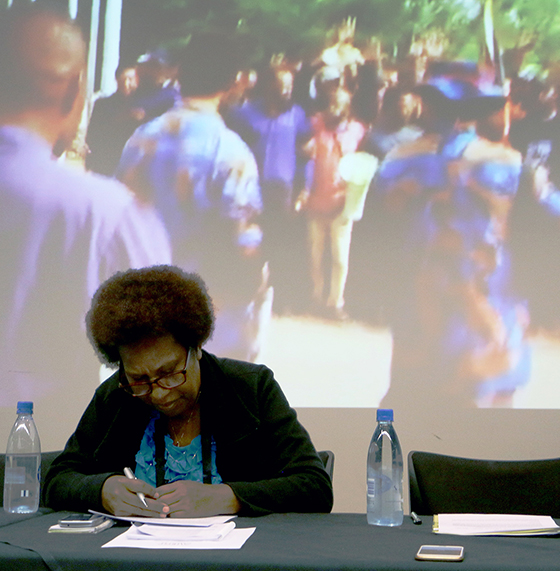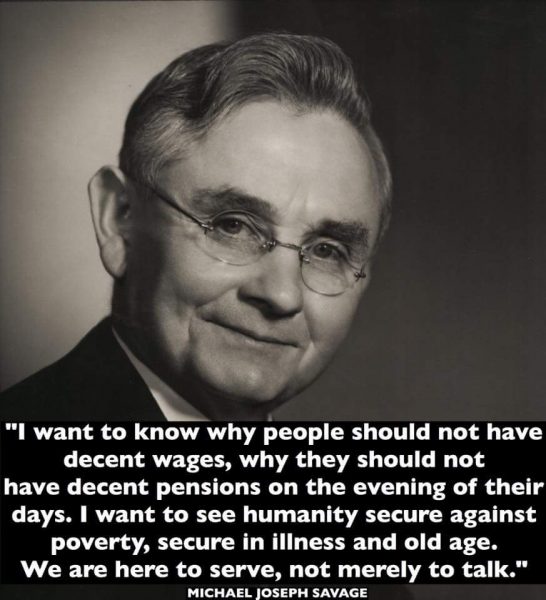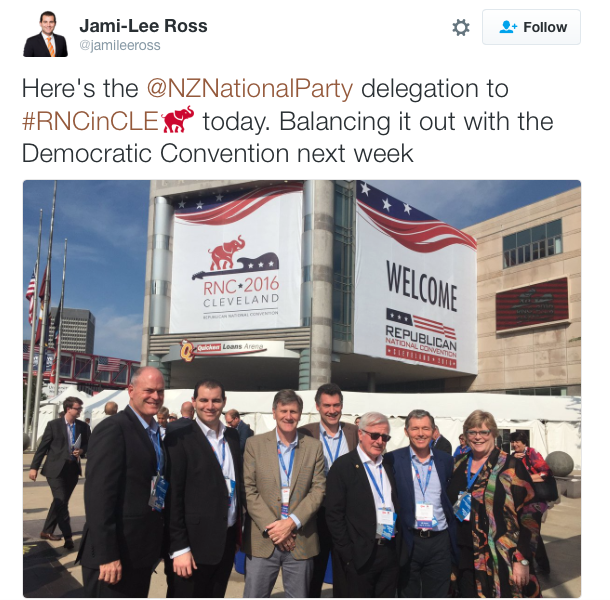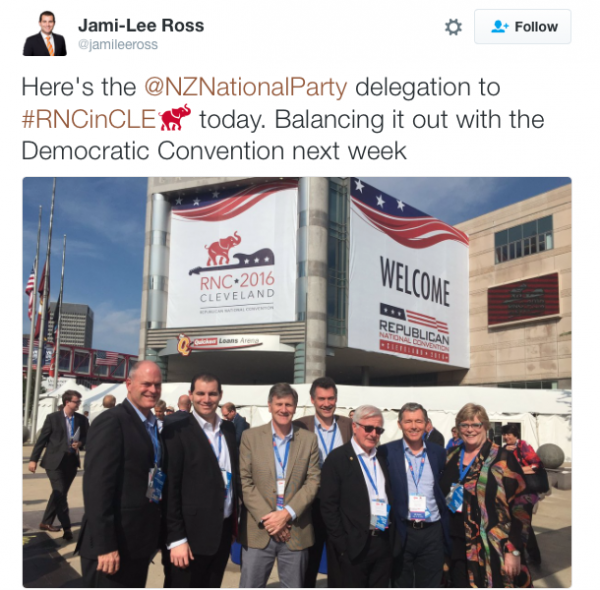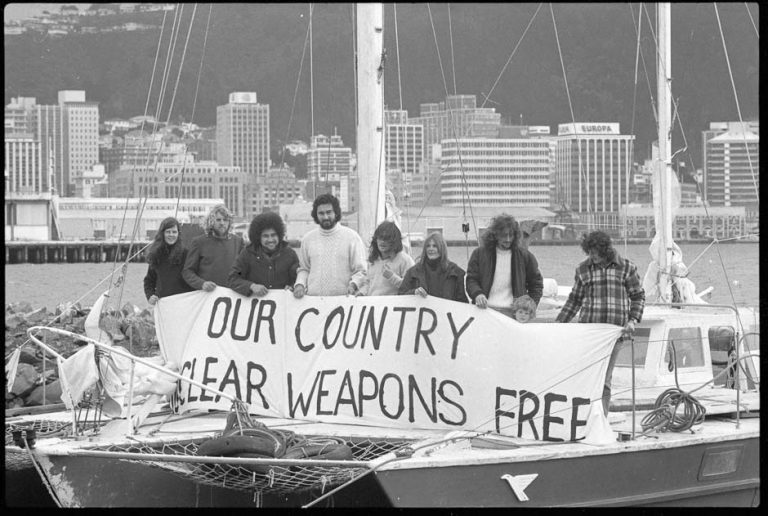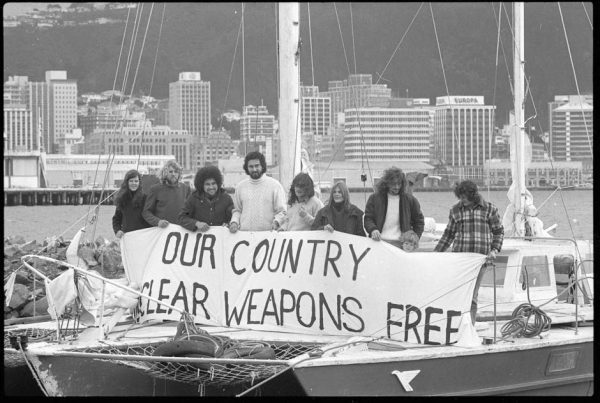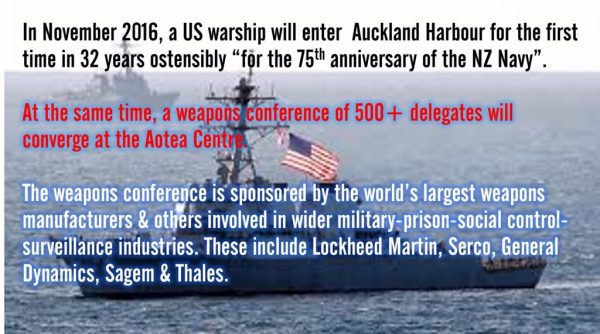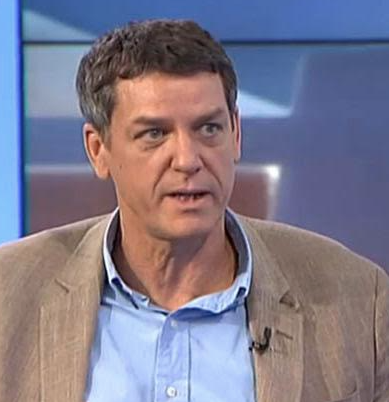
Let us begin with a few words from a Reserve Bank report on July 7, 2016, by Grant Spence entitled Housing risks require a broad policy response:
New Zealand is experiencing a housing market boom. House prices are increasing at 13 percent per annum nationally, and at 15-20 percent in Auckland and close-by regions. Evidence from housing cycles in several advanced economies suggests that the longer this continues, the more likely there will be a severe correction.
The Reserve Bank is mandated to promote the soundness and efficiency of the financial system. Our concern is that a severe housing correction would pose real risks for financial system stability and the broader economy. The banks are heavily exposed to housing with mortgages making up around 55 percent of total assets. Household debt, at 163 percent of household income, is at a record level.
Many domestic and international factors are contributing to the strength of the market. The current record low interest rates are a world-wide phenomenon linked to post-GFC caution and very low inflation in the global economy. Also, driving local housing demand has been an unprecedented net migration inflow over recent years reflecting New Zealand’s stronger economic performance relative to many other advanced economies.
While strong demand has been underpinned by low interest rates, rising credit growth and population increases, the housing supply response has been constrained by planning and consenting processes, community preferences in respect of housing density, inefficiencies in the building industry, and infrastructure development constraints. The resulting housing market imbalance has been exacerbated by New Zealanders’ ongoing preference for investment in bricks and mortar over financial investments, due in part to the ready availability of credit and a tax system that favours debt funded capital gains.
Private home ownership has become unaffordable for most people in this country without inherited wealth. Ownership rates have dropped from 74% to 64% since 1991.
Prior to 1991 the state provided loans directly to working class families at fixed interest rates to buy affordable homes. The government exited this role and sold the mortgages they held off to private sector providers who could choose who to loan to and charge whatever interest rate the market would bear. As a direct consequence, new homes coming onto the market priced in the lowest quartile dropped from 30% to 5% over the last 25 years.
The number of people renting homes has gone from one in four to one in three since 1991. Of the 270,000 children who live in poverty, 70 percent live in rental accomodation.
Homelessness up
Homlessness has dramatically increased over recent years. Thousands of families are forced to live in cars, garages, overcrowded homes, or on the street. A Statistics NZ report estimates that even to rehouse people in severe housing deprivations in New Zealand in 2006 would require an additional 20,000 homes.
The current government is moving to sell off into private ownership up to one third of the nominal 69,000 homes remaining in state ownerhip. Tenants are being placed tenancy agreements that lack any security.
Auckland house prices are ten times annual income. Prices have doubled in Auckland as a percentage of average income since the early 2000s. Prices are five times income nationally. Three times annual income is considered “normal”. New Zealand is now the most expensive country in the world to buy a house relative to income.
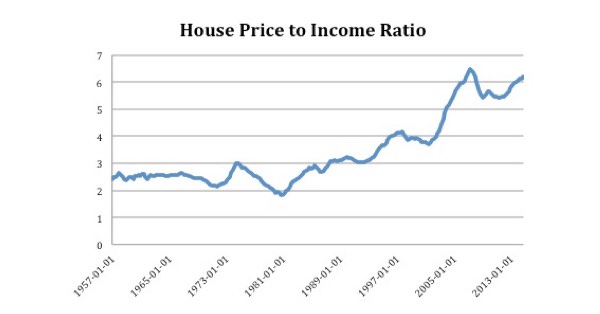
Auckland is considered to have a housing shortage of 32,000 homes. Rents have also escalated as a consequence.
It is almost certain that a “bubble” has developed in house prices. Bubbles happen when speculation starts to drive markets. Speculative activity is driven by a false perception that prices can only rise and that behaviour is facilitated by excessive bank lending.
Speculative excesses – in commodities, sharemarkets, housing – are inevitable under capitalism. The system is driven by competition, by a dog-eat-dog mentality and by greed. Every capitalist expects to be a winner and is driven to extend credit and production to its limits. But the market always has limits that can’t be broken through and overproduction crises inevitably follow.
The expansion of credit has led to a record in the household debt to income ratio of 163 percent – exceeding the peak prior to the great financial crisis of 2008. Many working class home owners have also been encouraged to refinance their homes and take on additional debt to fund current purchases. Tens of thousands of home-owners could be at risk of losing their homes if interest rates rose and/or prices fell significantly.
No capital gains tax
In New Zealand speculation is facilitated by the absence of capital gains taxes so investment in property is seen as having fewer risks. This is commented on in an OECD report in 2013 which noted: “New Zealand belongs to a group of five OECD countries with particularly high pre-tax capital-income inequality … As much of this income, especially at the top levels, takes the form of capital gains, the lack of a capital gains tax in New Zealand exacerbates inequality (by reducing the redistributive power of taxation). It also reinforces a bias toward speculative housing investments and undermines housing affordability, as argued in the 2011 Survey.”
Residential mortgages make up around 55% of banking systems assets, and a large share is to residential investors “who have a relatively high risk profile.” according the Reserve Bank. This is one of the main reasons they have just moved to restrict lending by banks to this sector.
Over half of the houses being bought in Auckland currently are now “investor” properties – a sure sign of a speculator driven market. Only 12 percent of new mortgages went to first home buyers in Auckland in 2015.
The growth in inequality in New Zealand and internationally produces a class of super wealthy that can choose the suburbs and cities they want to live in and drive prices above that any working person can expect to pay. This is true for international cities like London and New York and Paris but also “desirable” places like San Fransisco, Vancouver, Sydney and Auckland. The billionaire class have places in several of these cities at once. “Market prices” in those circumstances is simply the ability to pay.
Gentrification
“Gentrification” of suburbs is a conscious policy pursued by speculators in collaboratioin with local and central governments. That is how the really big money can often be made. That is why big property-owning capitalist families are often represented on local governments over many decades. They get the inside track knowledge of future trends in services and transport that can radically alter a suburb’s desirability and therefore the future movement in house prices.
Migration feeds the speculation but does not cause it. The current government has encouraged higher levels of immigration in recent years. The net gain of 170,000 permanent and long term arrivals in the last three years has significantly boosted housing demand in Auckland especially without a compensating increase in supply. The end result is an inevitable feeding of the bubble.
In addition, there are large flows of capital leaving China for safe investments abroad. Many Chinese have accumulated wealth (legally and illegally) and want at least a portion of that in a “safe haven” abroad. Many families also sponsor their children to study overseas – especially in English speaking cities. For some housing markets like Auckland it has the potential to distort normal investment patterns because in relation to the New Zealand economy China is an almost infinite potential source of cash.
This bubble can burst for any one of a number of reasons including panicky responses to inevitable and is some cases necessary policy changes. This could include economic downturns in either New Zealand, Australia or China; restrictions on capital flows out of China; restrictions on foreign investment in housing in New Zealand; restrictions on bank lending on housing in New Zealand; a rise in interest rates.
The government has struggled to keep the New Zealand economy growing since the 2008 recession. Huge budget deficits were run to moderate the recession and try and stimulate a recovery. Despite this spending the economy started to stall again in 2012 and the beginning of 2015. The government decided to boost immigration flows, relaxed tourist restrictrions on China, and ignored the overheated housing market in the hope of things staying relatively bouyant through to the election next year.
Capitalists are fearful
Capitalists are increasingly giving voice to their fear that the bubble has expanded too far and the risk of a disorderly collapse is being accentuated. That was behind the extraordinary statement by the chief executive of the ANZ bank David Hisco this week that there was a “complete crisis” in the housing marked. He called for more government regulation – an unprecedented move for a private sector banker.
New Zealand’s housing debt is around $215.9 billion, the biggest component of New Zealand’s $246 billion household debt, which itself has grown 26.2% in five years. By the beginning of 2016, the level of household debt to disposable income had risen to 163%. In 1984, 13.5% of New Zealand bank lending was for mortgages. In 2016, it is 51.9%.
The NZ Treasury Secreatry Gabriel Makhlouf said June 21 that housing represents around 60% of bank balance sheets. “In the event of a downturn, the high levels of debt across the banking sector and significant level of indebtedness of individual households could have knock-on effects that might cause serious losses of confidence and financial disruption. In short, inflated Auckland house prices are a risk to New Zealand’s financial stability and the economy more generally.”
It is in the interests of working people that the bubble is deflated in a controlled way to make housing more affordable. The bubble must also be deflated to prevent it exploding with catastrophic consequences for the banking system that would paralyse credit and drive the economy into a deep recession. It is always working people who end up paying for the bosses crises in loss of jobs and incomes.
We need solution that protect working people as much as possible in the invetibable capitalist economic turmoil ahead. Some homeowners will be put at risk of losing their homes as a result of banks reckless lending policies. Mortgage holders who end up in a situation where what they owe is greater than the value of the house should be able to repudiate the excess debt. They should also be able to convert their occupancy to a tenancy related to their income without bank forclosure.
Taxes should be imposed on empty properties to force them into the rental market and create an immediate increase in supply. The title of empty homes held by overseas investors could revert to the state with compensation limited to whatever was originally paid for the property.
Thousands of state homes needed
Tens of thousands of new homes need to be built to radically increase supply. To prevent a return to a new speculative housing bubble the government should focus their efforts almost exlusively on the provision of public housing, with security of tenure and rents linked to income. This was the policy of the first Labour Government and should be the policy being advanced today. The current Labour Party policy to only build 1000 state houses each year just won’t cut it.
Private housing developers are not interested in building “affordable” homes because the profit margin is lower.
The new public housing that need to be built does not have to be built by private developers. The government should establish a high-quality state-owned building company that can employ thousands of people needed to undertake the massive work needed. They can also create positions for the thousands of building apprentices that will be needed. These should be union jobs paying at least the living wage.
There is no reason why these homes can’t be built as “community housing” on publicly-owned or collectively-owned land.
New Zealand also needs radically improved rights for tenants of private and public sector housing. We need a bill of rights for tenants. Currently there is almost no security of tenure for tenants of rental accommodation. There are also no rent controls. Every rented property must have a warrant of fitness. No-one should be evicted without good cause and rental increases must be limited to cost-of-living increases.
But if rent controls are imposed and profitability is reduced, it is likely that there will be a reduction in investment in and ultimately supply of rental property. Rent controls must be accompanied by a massive boost to public housing being built and made available on secure lifetime tenancies.
The Accommodation Supplement (currently up to $200 a week in Auckland) paid as a targetted benefit to renters of private accomodation actually delivers a subsidy to landlords. Currently 60 percent of private renters (300,000 people) are in receipt of this benefit at an annual cost of $1.2 billion. This is the second largest welafre payment after National Superannuation.
It is probable that the Accomodation Supplement has simply fed into the rents that can be demanded and therefore the prices being paid by landlords or wannabe landlords for the investment properties they buy.
Ways or eliminating the Accommodation Supplement need to be found that don’t penalise current recipients. This can be done through substantial income boosts to beneficiaries and low income workers directly through universal benefits and major boosts to the minimuim wage.
Any market subsidy for someone to buy or rent propertry is eventually capitalised in prices. If someone is given help to buy an “affordable” home that is below market value they simply receive an immediate capital gain. That is why “affordable housing” agreements that force developers to build in a certain price range that is less than the market are usually bought by relatives and friends of the developer.
Price of land
The principle driving force of price rises is the escalation of the price of land. The price of putting a building on a piece of land in Auckland or Invercargill doesn’t vary that much. But the price of a house in Auckland is five times that of Invercargill. The difference is in the price of the land underneath.
Unimproved land is able to acquire a price under capitalism because as private property some land is able to give its owner beneficial access to an income stream. The best farmland will give the owner an income greater than the average. That gets reflected in the price that that land commands when it is sold or rented. Most business people will be satisfied with the average rate of profit when they rent or buy. If the property earns twice the average profit it will command a rental or price that captures the difference. This is called ground rent.
The price of unimproved land is actually the capitalisation of the ground rent at the prevailing rate of interest. If interest rates decline on average then prices increase. If interest rates rise on average over a period of time then prices will fall.
Ground rent income tends to be higher in large cities, especially ports and other major centres of transportation. This reflects the easier access to markets for the business, the higher profitability that is a consequence, and the capturing of that profitability by the owners of the land.
The price of a commercial property with a building on it also involves a return on the capital invested in the improvements as well as the ground rent. The same applies to a house that is to be sold or rented.
If a worker or a capitalist own the land they have their house or business on they can access the ground rent by renting the property or realising a capital gain when they sell it. If they have a mortgage over the property the ground rent is going to the bank.
The business cycle also impacts on prices. If business conditions are brisk and on a rising trend then profits will be high, demand will be strong and rents will rise, along with prices. The reverse is true in a recessionary phase.
Speculation is possible because of all these elements moving in different directions.
The state can simply suppress ground rent on property it owns. Publicly-owned houses on publicly-owned lands can be rented without demanding a premium for ground rent. Rents in that situation could be no more than 25% of income and still accumulate enough to repair, renovate, replace, and build more housing.
Tenants need to be empowered
Tenants of public housing should also be empowered to be part of the decision-making for Housing New Zealand and other state bodies. A majority of governing boards should be elected by tenants, workers, and the community generally – not just corporate hacks dedicated to turning oiut a dividend for the government.
Cooperative and Marae-based community developments could also remove the speculative element associated with ownership of land. Community members could put housing on communally owned land that was provided to members on cost recovery rental baisis or even a rent to buy basis with security of tenure. Community members could only sell houses back to the community. In that situation only the house and any improvements which are being rented or sold not the land it is on.
Private housing developments lack any sense of community. Their goal is purely private profit. No thought is given as to the social mix – how many kids there will be, the number of elderly, the need for sports facilities, playgrounds, places to socialise, community gardens.
Maori could teach us all ways of doing this communally and cooperatively. Many rural and urban Maraes have tried to maintain such spaces against all the odds over two centuries.
Why can’t we build a community where people can know each other, have social activities, grow and share food, have old people caring for the young, have young people looking after the elderly, organise movie nights in the community hall, plan theatre productions in the community theatre, put on music performances by the community bands, have community advocates ensure that every member is getting their entitlements from WINZ, authorise community and wardens to eliminate the need to call the police.
People in these communities could “own” their homes or rent them, it wouldn’t matter. All communities would be empowered to run their affairs in a democratic manner. Peoples power can start to be a reality from the bottom up.
Take back the Remuera golf course
We could start building such communities in Auckland today. Auckland city has thirteen golf courses. Just one of those in Remuera is 41 hectares of land in a prime central city location. It is occupied by a private club for a token rental that amounts to a fee subsidy of around $11,000 a year for each of its 1400 members.
Auckland City and the government could take the already publicly-owned land occupied by the Remuera Golf Club and turn it into a model new community housing area. Instead of land worth at least $500 million dollars being given to a few toffs to play golf on it could become an example of a new way to live for us all. The state has supressed the “ground rent” for the wealthy members of the Remuera Golf Club who pay a lease of only $130,000, a small percentage of the market rate that could be demanded. Why can’t the same be done for the homeless whose need is 100 times greater.
It also makes sense not to allow the search for corporate profit and individual enrichment to determine all key matters in an economy. Why shouldn’t the people be able to create an economic plan for the government to implement based on rational choices that benefit people and the environment. The communities we build do not have to be in overpopulated major cities – if we had jobs and recreational facilities available nearby any smaller population centres or neighbourhoods. Capitalism’s forced division between town and country can start to be reversed. A less isolated and alienated existence is possible.
All my policy prescriptions are technically feasible. If applied everyone would have a warm home with a secure tenancy. The only problem is that the major parties are committed to solving problems without upsetting the rich and powerful. That is simply not possible in today’s world. We need a government that clearly and unambiguously takes the side of working people and lead a transition to a democratically owned and managed economy.
TDB Recommends NewzEngine.com
